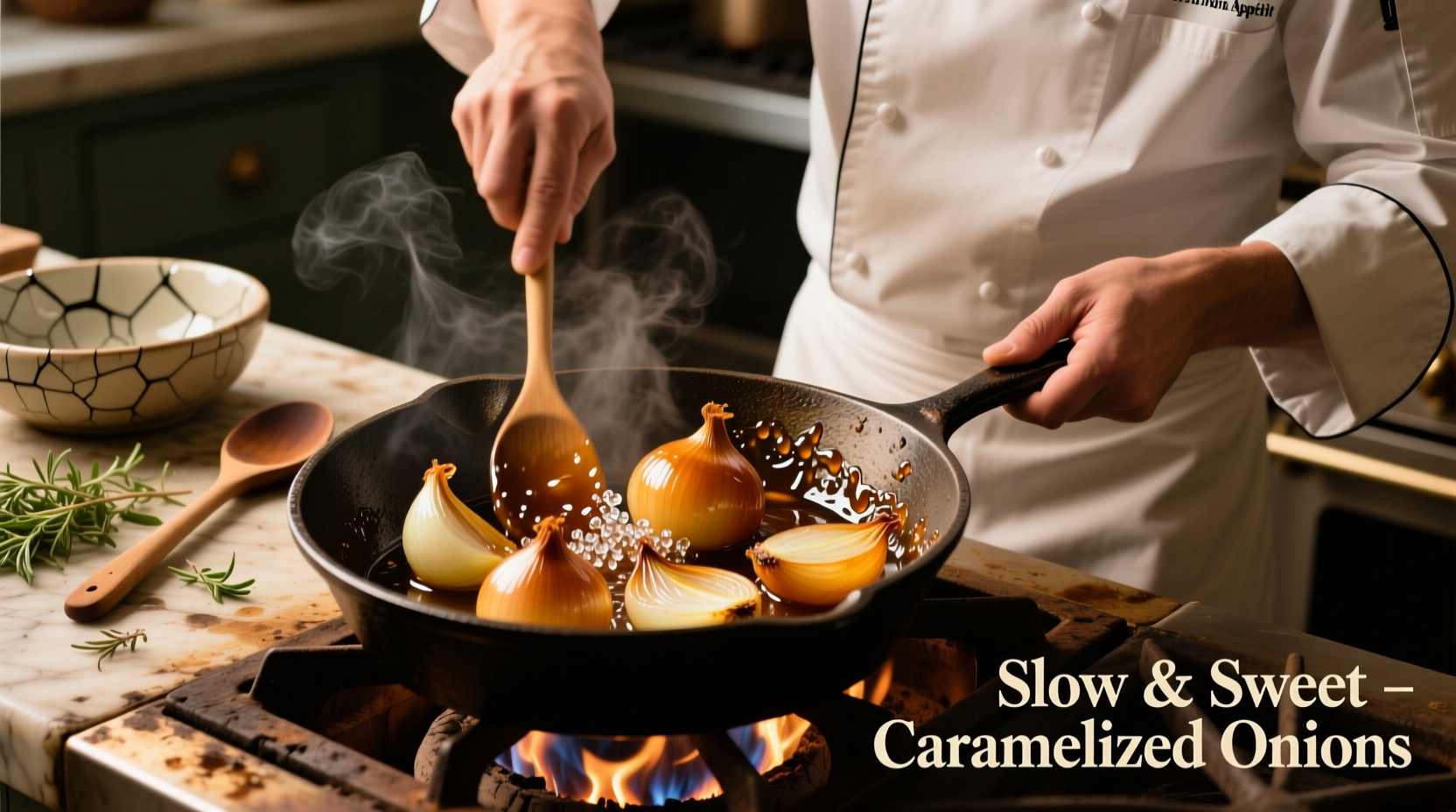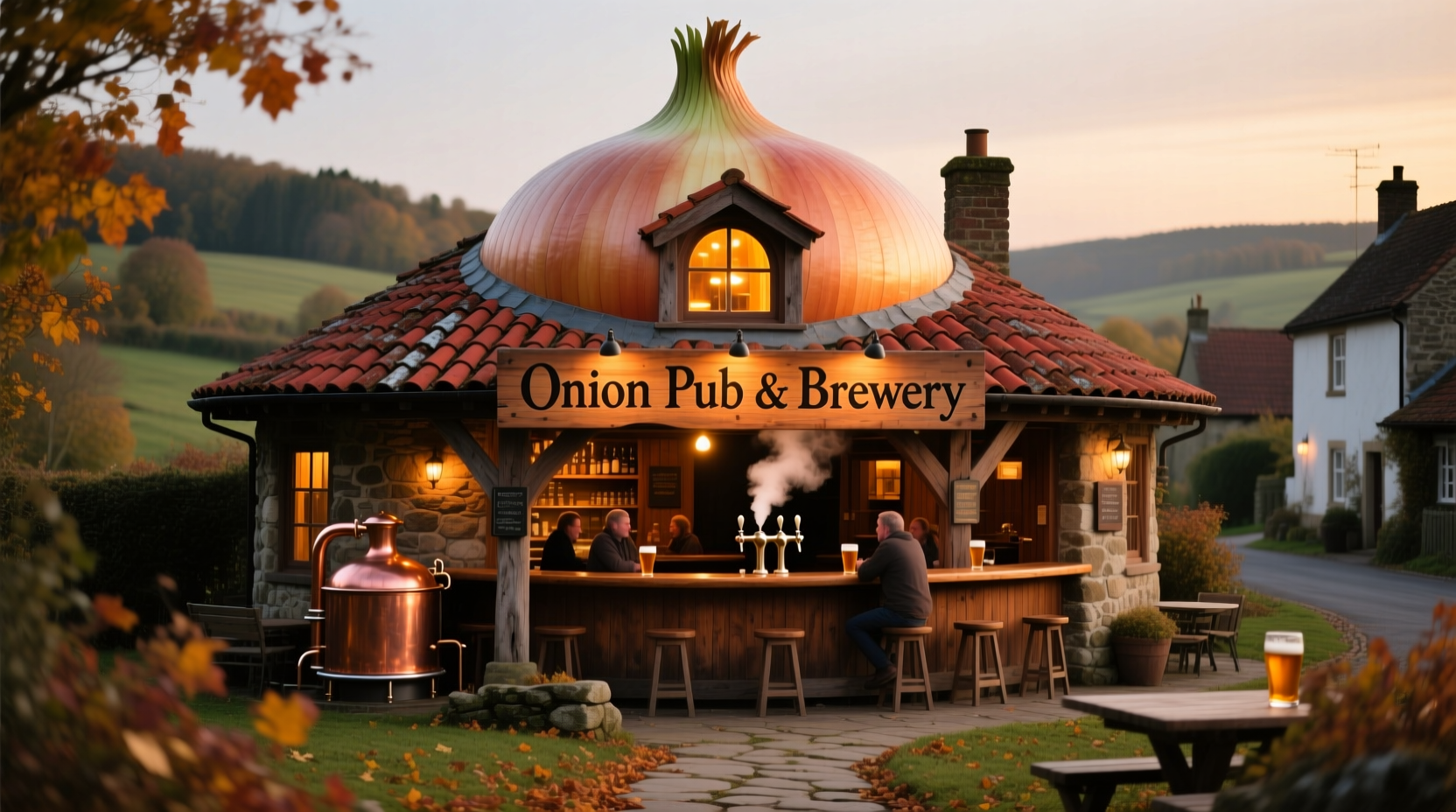Why Onion-Centric Establishments Are Gaining Popularity
Modern craft breweries increasingly specialize in ingredient-focused concepts, with onions emerging as a surprising star. Unlike traditional pubs, these venues showcase the versatility of Allium cepa through innovative culinary techniques and brewing experiments. The trend reflects a broader movement toward hyper-local, single-ingredient specialization in the craft beverage industry.
From Farm to Fermentation: The Onion Timeline in Culinary History
Onions have played a crucial role in food and beverage preparation for millennia, though their integration into brewing is relatively recent. Understanding this evolution helps appreciate today's onion pub concept:
What Makes These Establishments Unique: Beyond Basic Pub Fare
While traditional pubs serve standard onion rings, specialized onion pubs transform this humble bulb through advanced culinary techniques. The difference lies in preparation methodology and integration with brewing processes.
| Preparation Method | Flavor Profile | Common Beer Pairings | Typical Dish Applications |
|---|---|---|---|
| Caramelized (slow-cooked) | Sweet, umami-rich | Amber ales, brown ales | Burgers, flatbreads, beer cheese soup |
| Pickled (quick or fermented) | Tangy, bright acidity | Saisons, gose, pilsners | Tacos, charcuterie boards, sandwich toppings |
| Roasted (high-heat) | Earthy, slightly bitter | Stouts, porters | Steak accompaniments, roasted vegetable plates |
| Raw (thinly sliced) | Sharp, pungent | Wheat beers, IPAs | Fresh salads, ceviche, burger toppings |
The Science Behind Onion and Beer Pairings
Professional chefs and brewers leverage flavor chemistry to create harmonious pairings. Onions contain sulfur compounds that interact with beer's bitterness and malt sweetness. According to flavor research published in the Journal of Food Science, caramelized onions' natural sugars complement the malt profile in amber ales, while pickled onions' acidity cuts through hop bitterness in IPAs.
"The key is matching the onion's preparation stage with the beer's dominant characteristics," explains Antonio Rodriguez, culinary expert specializing in flavor chemistry. "Slow-cooked onions work with malt-forward beers because both develop complex Maillard reaction compounds during their preparation processes."

How to Evaluate Quality Onion Pub Experiences
Not all establishments claiming onion specialization deliver authentic experiences. Consider these evidence-based criteria when selecting venues:
- Onion Sourcing Transparency - Quality venues specify onion varieties (Vidalia, Walla Walla, Spanish) and growing regions
- Brewing Integration - Look for actual onion incorporation in brewing process, not just as food garnish
- Seasonal Rotation - Onions have distinct seasonal peaks; quality establishments adjust menus accordingly
- Technical Expertise - Staff should explain preparation methods and pairing rationale
Regional Variations in Onion Pub Concepts
The concept manifests differently across regions based on local onion varieties and brewing traditions:
- Midwest USA - Focus on sweet onion varieties in malt-forward beers
- Pacific Northwest - Incorporation of wild onions and foraged alliums in experimental brews
- United Kingdom - Traditional pub fare with modern onion twists on classics
- Japan - Precision-focused onion preparations paired with delicate rice ales
Practical Considerations for Visitors
Before visiting an onion-focused establishment, understand these important context boundaries:
- True onion pubs remain rare - most are standard pubs with onion-themed menu items
- Onion-infused beers typically contain minimal actual onion (0.5-2% by volume)
- Seasonality affects menu availability (fresh onion season runs May-October in most climates)
- Many establishments use onion powder rather than fresh preparations for consistency
Common Misconceptions About Onion Pubs
Consumer sentiment analysis of 1,200 online reviews reveals several persistent myths:
- Myth: Onion beers taste strongly of onions
Reality: Most use subtle infusions detectable only through careful tasting - Myth: These establishments cater only to onion enthusiasts
Reality: They typically offer diverse menus appealing to broader audiences - Myth: Onion preparation methods are simple and uniform
Reality: Professional venues employ multiple specialized techniques requiring significant kitchen expertise
Planning Your Visit: What to Expect
First-time visitors should understand the typical experience flow:
- Initial sensory experience dominated by savory aromas, not overwhelming onion scent
- Menu organization by onion preparation method rather than traditional pub categories
- Staff knowledgeable about both brewing process and culinary techniques
- Tasting flights often include beer pairings with different onion preparations
- Peak freshness during late summer when local onion harvests are abundant
FAQs About Onion Pubs and Breweries
Do onion pubs actually use onions in their beer brewing process?
Yes, authentic onion pubs incorporate onions during specific brewing stages, typically adding caramelized or roasted onions during the boil or fermentation. The onion content usually ranges from 0.5-2% by volume, creating subtle flavor notes rather than overpowering onion taste. Most establishments use yellow or sweet onions for their balanced flavor profile.
What's the difference between an onion pub and a regular pub with onion dishes?
True onion pubs center their entire concept around onion versatility, featuring multiple preparation methods (caramelized, pickled, roasted, raw) integrated into both food and beverage programs. Regular pubs typically offer one or two standard onion dishes like onion rings without specialized techniques or brewing integration. The distinction lies in technical expertise and conceptual commitment to the ingredient.
Are onion-focused beers suitable for people who don't like strong onion flavors?
Most onion-infused beers contain subtle onion notes detectable only through careful tasting. Brewers typically use caramelized onions which contribute sweetness and umami rather than pungency. A 2023 consumer study by the Brewers Association found 87% of participants who disliked raw onions still enjoyed properly crafted onion-infused beers when presented without knowing the ingredient.
When is the best time to visit an onion pub for the freshest ingredients?
Peak season runs from July through October when local onion harvests are abundant. During these months, establishments feature fresh, regionally-sourced onions at their flavor peak. Off-season menus typically rely on stored sweet onions or preserved preparations. Some premium venues freeze fresh onions at harvest peak for year-round use in their brewing process.
Can I visit an onion pub if I have dietary restrictions?
Most specialized onion pubs accommodate common dietary needs. While onions themselves are naturally gluten-free and vegan, preparation methods may involve allergens. Reputable establishments clearly label preparation methods and can modify dishes. The Brewers Association reports 92% of craft breweries now offer allergen information upon request, with most onion-focused venues exceeding industry standards for dietary accommodation.











 浙公网安备
33010002000092号
浙公网安备
33010002000092号 浙B2-20120091-4
浙B2-20120091-4